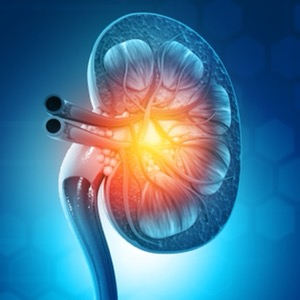Originally published by our sister publication Specialty Pharmacy Continuum
By SPC News Staff
The FDA granted a new indication for iptacopan (Fabhalta, Novartis) to treat adults with C3 glomerulopathy (C3G) to reduce proteinuria, making it the first and only treatment approved for this condition.

C3G is a progressive and ultra-rare kidney disease that is typically diagnosed in young adults, and until now, has had no approved treatments.
Iptacopan is the only oral inhibitor of the alternative complement pathway to selectively target what is thought to be the underlying cause of the disease. Before the approval of iptacopan, patients had to rely on supportive care, broad immunosuppression and symptom management.
The pivotal phase 3, multicenter, randomized, double-blind, parallel-group, placebo-controlled APPEAR-C3G study evaluated the efficacy and safety of twice-daily oral iptacopan in adult patients with C3G. The study included a six-month randomized, double-blind treatment period with iptacopan compared with placebo in addition to supportive care, followed by another six-month open-label treatment period where all participants received iptacopan.
The primary end point for the double-blind period was proteinuria reduction from baseline at six months for iptacopan compared with placebo, as measured by a 24-hour urine protein-to-creatinine ratio. In addition to the results from adult patients with C3G, enrollment is ongoing in a separate cohort of adolescent patients with C3G.?
Treatment with iptacopan resulted in clinically meaningful proteinuria reduction, which was seen as early as 14 days and sustained at 12 months. Similarly, in the open-label period, proteinuria reduction was seen in participants who switched to iptacopan (Nephrol Dial Transplant 2024;39[suppl 1]).
Iptacopan demonstrated a favorable safety profile, with no new safety signals. In patients with C3G, the most common adverse reactions (≥10%) with iptacopan were nasopharyngitis and viral infections. Iptacopan may cause serious infections caused by encapsulated bacteria and is available only through a Risk Evaluation and Mitigation Strategy that requires specific vaccinations.
Without treatment, prognosis is poor, with approximately half of people living with C3G progressing to kidney failure within 10 years of diagnosis, requiring lifelong dialysis and/or kidney transplantation (Int J Mol Sci 2020;21[2]:525). People living with C3G may experience high levels of fatigue, mobility issues affecting everyday life activities and mental health symptoms, including depression and anxiety.
“C3G is a debilitating disease often affecting young people, impacting many aspects of their physical and emotional health, and our previous treatment options came with significant challenges,” said Carla Nester, MD, MSA, FASN, a professor of pediatrics-nephrology at the University of Iowa, in Iowa City, and iptacopan APPEAR-C3G study co-investigator.
Continued approval for this indication is contingent upon confirmatory evidence.
This is the third U.S. approval for iptacopan. It was approved in December 2023 to treat adults with paroxysmal nocturnal hemoglobinuria, and in August 2024 for the reduction of proteinuria in adults with primary immunoglobulin A nephropathy at risk for rapid disease progression.
{RELATED-HORIZONTAL}